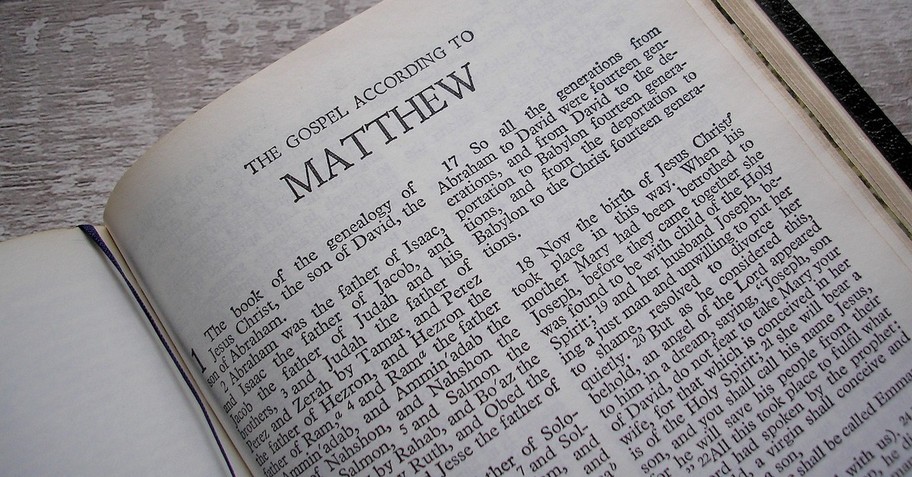This Ask Roger article may feature insights from Roger's wife, Dr. Julie Barrier, co-founder of Preach It, Teach It, worship minister, concert artist, and adjunct professor at Golden Gate Baptist Theological Seminary, or his daughter, Brie Barrier Wetherbee, a sought-after Bible teacher and conference speaker, author, analyst, and Christian theologian.
Does "Turning the Other Cheek" Mean We Should Let Others Hurt Us Again?

Dear Roger,
I've always struggled to understand the passage where Jesus said that if someone hurts us, we are to turn the other cheek and let them hit us again.
This bothers me, because one of my best college friends was a Baylor athlete who came to breakfast one morning with a swollen face covered with colors ranging from red to brown to deep purple to black. One eye was swollen completely shut. Hank refused to fight back when a freshman quarterback who was angry with him began to beat him up. The freshman was promptly thrown off the team and out of school.
I asked Hank, “What happened to you?"
He replied, “Jesus said to turn the other cheek. So, I did."
What would Jesus think about that? Is that really what He meant?
Sincerely, Joseph
Dear Joseph,
Jesus’s teaching about turning the other cheek is from Matthew 5:38-42, which is part of His Sermon on the Mount. Jesus was instructing His followers—including you and me—in how to respond when someone hurts us or when we are asked to do something we don’t want to do:
“You have heard that it was said, ‘Eye for eye, and tooth for tooth.’ But I tell you, do not resist an evil person. If anyone slaps you on the right cheek, turn to them the other cheek also. And if anyone wants to sue you and take your shirt, hand over your coat as well. If anyone forces you to go one mile, go with them two miles. Give to the one who asks you, and do not turn away from the one who wants to borrow from you.” (Matthew 5:38-42)
Photo Credit: ©iStock/Getty Images Plus/Pheelings Media
1. The Scriptural Context Is “Don’t Fight Back”
I believe Matthew 5:38 is one of the most difficult passages in the New Testament. The interpretation seems obvious. But the problem is that it’s rather difficult to make this teaching fit what you and I would naturally want to do.
When I read, “An eye for an eye and a tooth for a tooth,” I am on solid ground. This is what Moses taught in the Old Testament Law: If there is injury, you are to take life for life, eye for eye, tooth for tooth, hand for hand, foot for foot, burn for burn, wound for wound, bruise or bruise.” (Exodus 21:23-25)
It’s easy for me to return good for good and evil for evil!
Have you ever had the pleasure of getting even with someone? It’s the easiest thing in the world to hit back! I have little difficulty in spitting on you if you first spit on me. I have no problem with fighting back when you start it. Even a dog fights back!
However, when I read what Jesus says in Matthew 5 and try to make it fit my life, I must honestly confess to you that I struggle with what my human self wants to do compared with what God calls us to do.
Note that in the law of Moses, the principle of punishment to match the crime had two basic purposes.
The first purpose was to curtail further crime. When someone is facing sure punishment, they are less likely to commit a crime (see Deuteronomy 19:18-20).
The second purpose was to prevent excessive punishment. If someone bruises your arm, you have no right to poke out their eye. Punishment was to match, but not exceed, the harm done by the offense (see Genesis 4:23-24).
In the New Testament, Jesus is teaching us how to relate to each other as His followers—revealing His love to the world. He’s saying, “Don't strike back. Don't spend your life trying to get even!” And it takes a strong Christian to stand back and refuse to retaliate.
2. Jesus Is Not Telling Us to Be Doormats
Probably no part of the Sermon on the Mount has been so misinterpreted and misapplied as Matthew 5:38-42. It has been interpreted to mean that Christians are to be sanctimonious doormats. It has been used to promote pacifism, conscientious objection to military service, lawlessness, anarchy, and a host of other positions that Jesus never meant to support!
On the other hand, if you’re walking down the street and see a child being molested or a woman attacked, don't quote that Jesus Christ said, “Resist not evil” and stand there and watch. You'd better go help.
Jesus said, “If you don’t have a sword, sell your coat and get one” (Luke 22:36).
Jesus said to Peter, “Put your sword away” (John 18;11).
How can we understand both commands? My guiding principle is, “There is a time to fight and there is a time to turn the other cheek.” Wisdom is often needed to distinguish the proper course of action.

3. Jesus Uses Four Commands to Illustrate This Principle
1. Never return insult for insult (Matthew 5:39).
According to the rabbis in Jesus’ day, hitting someone across the face with the back of the hand was twice as insulting as hitting with an open hand. It was a double insult to receive a flick of the hand on the cheek, one of the most demeaning and contemptuous of acts toward someone else.
Jesus Christ is saying, “Even if a man should direct at you the most deadly and calculated insult, you must not retaliate!”
I was sitting in a church meeting when one of my church “enemies” got up out of his seat and walked around my back and began castigating me for something I had done that he didn’t like.
Fortunately, I remembered Proverbs 19:11, "It is to a man's glory to overlook an offense.” I waited until he was finished and continued the meeting without acknowledging his presence. The issue was his problem, not mine.
2. Be willing to give up your possessions or rights in order to bring peace (Matthew 5:40).
Jesus said, “In a lawsuit, return the coat that you want before nightfall.”
In other words, if you are involved in a lawsuit and the one doing the suing receives a man’s coat for payment, then let him have it for a day, but give it back that night. He needs it as a blanket that night when it’s cold. Return it to him (see Exodus 22:26-27).
The attitude of a kingdom citizen should be a willingness to surrender even one's coat rather than cause offense or hard feelings with an adversary. Recognize that even those who seek to harm you are people with needs and feelings.
3. Do more than you are required to do for others (Matthew 5:40).
Rome had soldiers all over Palestine to keep peace and collect taxes. There’s no worse job than being an occupying soldier in a foreign land. The Romans were hated. Jews let them have it at every opportunity.
Jesus is referring to a Roman Law which allowed soldiers to conscript a civilian and have him carry a pack for a mile, but no more.
You can imagine the love that this generated between the Romans and the Jews!
Jesus is saying, if a Roman soldier asks you to carry his pack for one mile, then go with him two miles. Go one mile because you have to. But don't go just one. Go two.
Most of us try to find out where the milepost is so we know where to stop. We don't want to go beyond that! We do what we have to do and then quit.
But imagine what it said to a hated Roman soldier when the man he made carry his pack went an extra mile, without being asked. He saw kindness, acceptance, and the love of Jesus.
4. Give generously to those who ask (Matthew 5:42).
The giving and borrowing that Jesus speaks of here should be understood in connection with the biblical principle of caring for the poor. He doesn’t mean that one should give whatever any person asks for, but that one must lend in the sense of Deuteronomy 15:7-8: “If there is a poor man among you, do not be hardhearted or tightfisted toward your poor brother. Rather be openhanded and freely give him whatever he needs.”
When someone asks to borrow something, we should not turn away from him. In other words, we should give him what he needs. The implication is that the person who asks has a genuine need. Sometimes to give a person what he wants but does not need is a disservice, doing him more harm than good.
Photo Credit: ©Pixabay/ScottishPerson
4 Specific Ways We Need to Apply This Principle in Our Lives
1. As Christians, we must often give up our rights.
The apostle Paul gave up many of his rights in order to reach others for Christ. I’ll paraphrase:
“I gave up my rights for the sake of the gospel! I gave up my right to food and drink. I gave up my right to be married. I gave up my right to receive a salary. Others receive support; but I gave up my right to it. Why? So that I can offer the gospel free of charge. I gave it my right to have a healthy body. My body has been beaten often until it’s black and blue.”
Our rights are never, ever as important as leading people to Jesus Christ. Showing His love and care through our actions often requires us to put others first. This is never easy—especially in a culture that constantly bombards us to stand up for our rights. But it is critical as followers of Jesus!
2. As Christians, we don’t have near as many rights as we think we do.
According to Paul, “If we have food and clothes, we will be content with that” (1 Timothy 6:8).
Think about what this means. We don’t even have the right before God to have a house. In other words, we must stop thinking that the world owes us a soft living, or that we deserve anything special in the world’s eyes. We’ve been called to deny ourselves as we follow Christ.
3. We must rid ourselves of the constant tendency to be watching out for our own self-interests.
Jesus says, “Stop spending life trying to get even; quit worrying about whether or not you have all of your possessions; stop looking for the mileposts. There are more important things!”
One element of the American Declaration of Independence is that we have the right to seek “life, liberty, and the pursuit of happiness.”
In our day, the number of rights claimed has greatly expanded. Movements have developed for civil rights, women’s rights, children’s rights, workers’ rights, prisoners’ rights, LGBTQ+ rights, and so on. Never has a society been more concerned about rights!
Many conclude that they are free to do anything they want. They demand that we all “have our own truth” and that whatever it is must be accepted by everyone else. But that is a misunderstanding of the Declaration of Independence. That document never meant that we are free to do anything we like. It means that we are free to do what is right.
That’s what freedom in Christ looks like. We are free to do whatever honors Him and points others to salvation—and in that freedom, we find abundant life!
4. Redeem the one who offends us. Refuse to respond in kind. Respond in contrast.
Whereas the Mosaic Law is aimed at punishing evildoers, Jesus’ philosophy is aimed at redeeming the evildoer.
When someone does evil to us, do we want to do away with the evildoer? If it is the one who offends us that we want to destroy, the Law of Moses is sufficient. But, if we wish to destroy the evil itself and to salvage the evildoer in the process, we must take another approach.
The only way to destroy the evil and to salvage the evildoer in the process is to respond in contrast. Do not respond in kind.

Not Turning the Other Cheek Well
Years ago, we had a small rebellion in our church. Eighteen people got together and didn’t like the particular direction in which I was leading the church. They told me that if I didn’t stop heading in that direction, they would destroy me. They told me that they were arranging it so that I would never preach again. Unfortunately, in a strange way, they had a workable way to accomplish the threat.
I decided to turn the other cheek. Unfortunately, I didn’t turn the other cheek very well.
Several in the group wanted to reconcile, but I was so hurt and angry that I refused even to meet with them. I made things so uncomfortable that they had no choice but to leave the church.
I thought that I’d pretty well settled the issue in my mind and overcome my bitterness until one night I dreamed that I was a soldier in World War II, and an American soldier nearby was guarding a group of German POWs.
The captured German captain turned my way, and I recognized my old adversary. I sat up in bed and screamed, “Shoot him! Shoot him! Shoot him!” I had no idea I was harboring such anger and bitterness. I talked it over with God but couldn’t bring myself to meet and reconcile my issues. In essence, I was choosing not to turn the other cheek.
A few years later, I’d just finished a funeral when a married couple who were in the rebellious group approached me. I froze. I didn’t want to see them.
But now they were standing before me, and the wife asked, “I’m sorry for the way I treated you so long ago, would you please forgive me?”
I stood in silence. I couldn’t get any words out. Finally, her husband said, “Are you going to forgive her or not?”
It was time to turn the other cheek. I replied, “I can’t do it now. Let’s go to lunch tomorrow, and talk this through.” So, we did. We’ve been friends ever since.
I’m human. I’m not proud of the way I handled this situation at first. I wouldn’t let us reconcile. But I’m thankful that I finally matured enough in Christ to turn my cheek this time as I talked with them later.
Well, Joseph, I hope my answer is helpful to you. When it’s time, turn the other cheek. You be glad you did, and Jesus will be pleased.
Love, Roger
Photo Credit: ©Getty Images/Memedozaslan
Originally published April 26, 2022.









